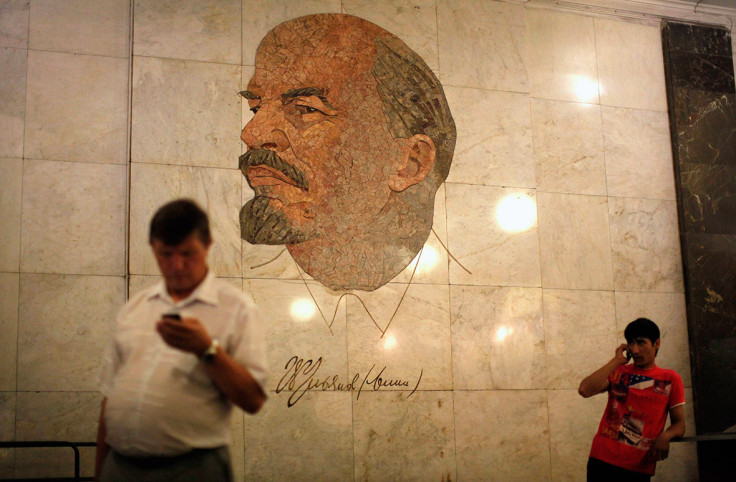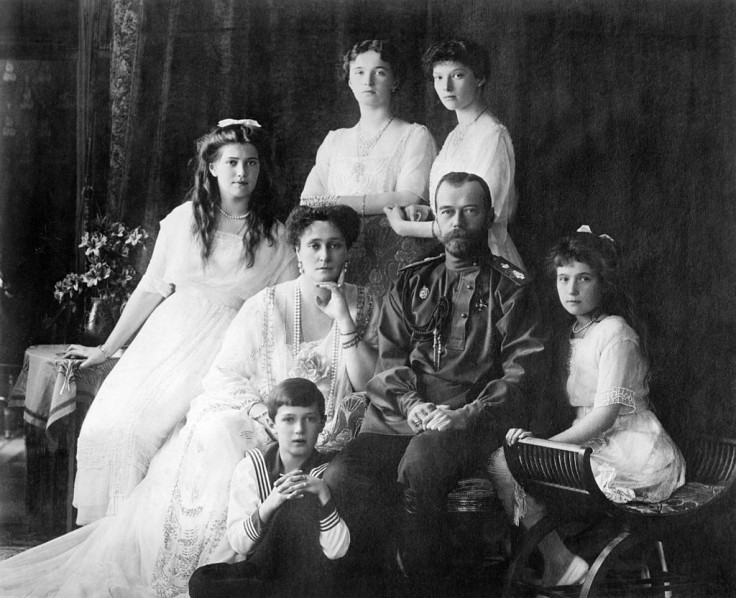The Russian Revolution and the judgement of history

KEY POINTS
- Lenin's revolution took place exactly 100 years ago
- Was the totalitarian nightmare inevitable?
October can be a wistful and poignant month in any year. The hours of daylight are increasingly parenthetical to the night, whereas out of doors the air is cloaked in a sombre atmosphere of a world slowly slipping into hibernation.
This October is particularly plaintive for anyone interested in history as well as the subsection of history that Perry Anderson once called the "history of possibility". October 2017 represents the usurpation of one order by another in a political as well as a natural sense: the centennial and semicentennial anniversaries of, respectively, the Russian Revolution and the death of Che Guevara in Bolivia.
The failures of both the revolution and the revolutionary – Russia has regressed into something resembling Tsarism while the Guevara penumbra emits a diminishing flame over impoverished and melancholic Cuba – only adds to the romantic allure. Thwarted possibility is after all central to both love and tragedy. Anything which retains a kernel of attraction for any length of time must necessarily contain an element of both.
Lenin's revolution, which took place exactly 100 years ago this Wednesday (25 October), was essentially a coup that followed on from the disposal of Tsar Nicholas II eight months earlier. But its roots ran deeper, and the events of October were set in motion by Tsarist absolutism and its pursuit – together with other great powers – of the First World War in which 14 million perished.
"A war between Austria and Russia would be a very useful thing for the Revolution, but it is not likely that Franz Josef and Nikolasha [Tsar Nicholas] will give us that pleasure," wrote Lenin to the Russian writer Maxim Gorky in 1913, underestimating the stupidity of the mediocre Romanov family that ruled over Russia.
Less than a year later, Russia had lost 1.2 million men, killed, wounded or missing in a conflict that would later help to create the conditions for Adolf Hitler's rise to power in Europe's most advanced country.
Lenin himself was initially radicalised by the execution of his brother, while the Russian people were radicalised by the fallout from the war. Once the Tsar had been deposed in February 1917, the short-lived Provisional Government continued to back the bloodbath. Lenin meanwhile was unwavering in his opposition to it. The Bolshevik slogan of 'Peace, Land and Bread' was brilliant in its simplicity, and vindicated the belief that material demands could triumph over shallow exhortations to patriotism and the God-like permanency of the Tsar.
The title for Lenin's most famous work, What is to be Done, was borrowed from an earlier novel by the Russian writer and philosopher Nikolai Chernyshevsky. The hero for Russia's revolutionaries was a relatively minor character in the novel named Rakhmetov, who in monk-like fashion embraced an ascetic abstention from sex and alcohol, ate only raw steak and divided his days up into units of a quarter-hour for various revolutionary activities.
The Russian Revolution contained many Rakhmetovs, and the Soviet regime built by Lenin looked a lot like the regime it deposed. It was draped in emancipatory rhetoric, but in practice the Soviet Union was buttressed by what the former communist Arthur Koestler called "the necessary lie; the necessary slander...the necessary liquidation of a whole generation in the interests of the next".
At its root, Soviet morality was determined by what best served the interests of Soviet state power. If the Russian state represented the workers, then its aims must be imposed on all those who did not understand those interests. Human beings were ultimately mere instruments in the historical drive towards communism.

The leftish-hue of many early critics of Bolshevism is important, however, not least when so many contemporary certainties prevail about the supposedly unique ideological madness of socialism. Indeed, one of those who saw through the illusions of Bolshevism earlier than most was the British socialist Bertrand Russell, who travelled to Russia in 1920. In The Practice and Theory of Bolshevism, Russell wrote of the "militant certainty about objectively doubtful matters" that characterised the communist militants. Bolshevism was "not merely a political doctrine", but "a religion, with elaborate dogmas and inspired scriptures".
The supposedly 'moderate' alternative left its own mound of corpses. Winston Churchill expostulated wildly about the "foul baboonery" of Bolshevism and the British were the most serious financial backers of the Whites, sending £100 million in weapons and aid. The White armies that fought the Bolsheviks during the 1917-1922 civil war systematically murdered upwards of 150,000 people. Major General William Graves, commander of the American White forces in Siberia, claimed the Russian anti-Bolshevik armies "killed one hundred people in Eastern Siberia to every one killed by the Bolsheviks".
Regis Debray, Che Guevara's comrade in arms in Bolivia in the 1960s, once wrote that the "revolution revolutionizes the counter revolution". Alexander Kolchak, the forty-three-year-old leader of White forces in the east, carried faithfully around with him a dog-eared copy of the anti-Semitic Protocols of the Elders of Zion.
In Britain, our own centennial reckoning with the Russian Revolution typically takes the form of a chorus of mechanical denunciations of what is posthumously written off as a doomed enterprise from the very start. While history is written by the victorious, it is typically written by a subsection within that 'side' who express the greatest degree of blind certainty. The fact that the post-89 world order appears to be crumbling only serves to bolster the unquestioning assurance of these one-dimensional retellings in which the freedom-loving west squared off against the 'savage' Orient.
Ultimately, it is perhaps worth remembering George Orwell's admonition that, while all revolutions end in failure, they do not all produce the same failure. A similar point to Orwell's was made slightly earlier by the Russian revolutionary Victor Serge. Looking back on 1917 after fleeing both Hitler and Stalin for Mexico City, Serge saw Bolshevism as containing "the germ of all Stalinism...at its beginning".
However, living not far from where Leon Trotsky had been murdered by one of Stalin's agents months earlier, Serge cautioned against judging "the living man by the death germs which the autopsy reveals in a corpse". The Russian Revolution "contained many other germs", as Serge put it; and these need not have led inexorably to famine, terror and prison camps.
It is nothing if not a historical irony that, 100 years on, it is those who purport to be manifestly opposed to the Marxist idea of historical inevitability who should find this last point so difficult to grasp.
© Copyright IBTimes 2025. All rights reserved.






















